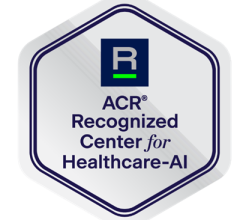
April 27, 2018 — Sun Nuclear Corp. released significant new functionality for its SunCheck Platform for patient and machine quality assurance (QA) in radiation therapy. Designed to support a broad range of planning and delivery technologies, SunCheck 2.0 streamlines and standardizes workflows, allowing greater overall focus on patient safety.
With SunCheck, hospitals and cancer centers gain:
- One solution for radiation therapy QA. Managing all patient and machine QA in a consistent way helps reduce the likelihood of errors going undetected;
- Speed and efficiency through automation. Less time spent on manual tasks means more bandwidth for data analysis, clinical decisions and continuous improvement; and
- Access from anywhere. SunCHECK is browser-based and accessible to staff through a secure network. From dashboard reviews to deep data analysis, a single database drives the entire process.
Within the SunCheck Platform, SunCheck Patient integrates all phases of patient QA into a seamless workflow, including secondary checks, phantomless pre-treatment QA and in-vivo monitoring.
Key new functionality includes:
- EPID-based Transit Dosimetry, compliant with 2013/59/EURATOM, Article 83;
- Pre-set, yet customizable, dose tolerances per phase, with Universal Metrics; and
- Expanded 3-D secondary dose and MU calculation support, including for TomoTherapy (Monte Carlo-based), high dose rate (HDR) brachytherapy and stereotactic cone systems.
SunCheck Machine helps to improve standardization and ease compliance reporting for daily, monthly and annual QA across locations, machines and staff.
Key new functionality includes:
- Standard and complete TG-142 templates;
- User-friendly editing or creation of customized QA templates and tasks;
- Direct device connectivity to Sun Nuclear’s Daily QA 3 and IC Profiler solutions; and
- Centralized data storage and flexible reporting for accreditation and compliance.
SunCheck 2.0 featured in the Sun Nuclear booth at the 2018 European Society for Radiotherapy and Oncology Congress (ESTRO 37), April 20-24 in Barcelona, Spain.
For more information: www.sunnuclear.com


 August 09, 2024
August 09, 2024 








